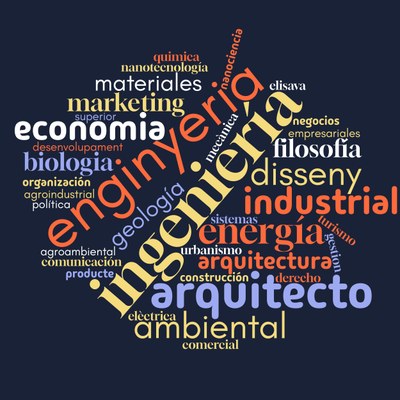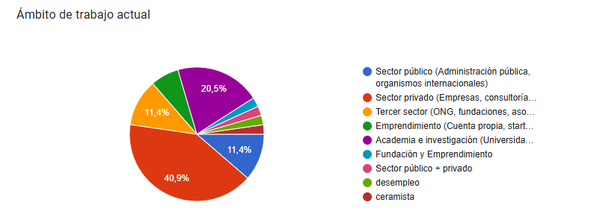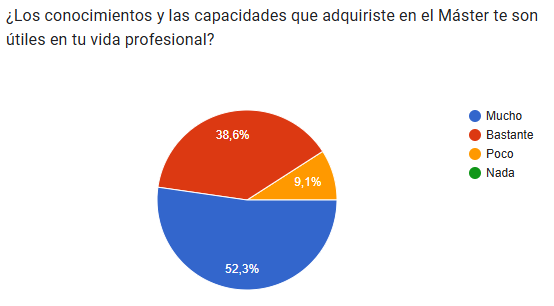MCTS alumni: sectors, profiles and impact
In March 2025, we conducted a survey to understand how the Master's in Science and Technology for Sustainability (MCTS) has influenced the professional trajectory of our alumni after completing their studies. The 44 responses reflect a diverse, committed, and highly engaged community facing current social and environmental challenges.
Diverse educational backgrounds
The word cloud on initial education before entering the MCTS highlights a richness of origin profiles that is one of the program's great strengths. Terms like engineering, architecture, environmental, and industrial dominate, but we also find philosophy, biology, economics, communication, and politics. This diversity fosters an environment of interdisciplinary dialogue where critical, creative, and transformative perspectives are generated to address the major sustainability challenges.

Diversity of professional fields
The chart on current work areas shows how MCTS alumni are distributed across multiple sectors. The private sector (consulting firms, companies, and industries) accounts for nearly 41% of responses, followed by the academic and research field with 20%. Also notable are those working in the third sector, in public administration, and in entrepreneurship, as well as unique or mixed cases such as professionals combining public and private sectors or pursuing alternative paths like artistic ceramics. This variety clearly demonstrates the transversality and real applicability of the MCTS in very diverse settings.

A useful and relevant education
When asked whether the knowledge and skills acquired in the master's program are useful in their professional lives, over 90% of participants state that they are very useful (52%) or quite useful (38%). Only a very small percentage considers them to be of little use. This result supports the relevance of the content, the interdisciplinary methodology, and the practical approach of the program.

Share: